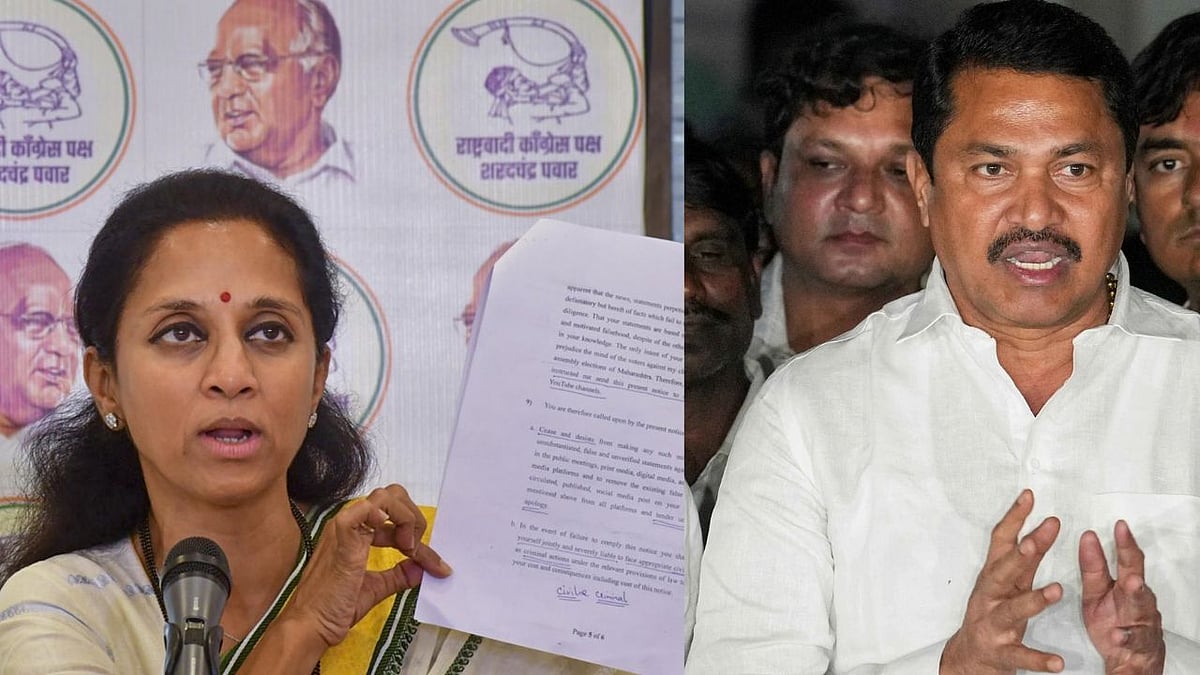Narendra Modi never ceases to surprise. He surprised everyone, probably including himself, by sweeping the 2019 elections. The brutal victory evoked fears of an Armageddon and the critics saw Modi 2.0 as a confirmation of the proclamation of a Hindu Rashtra. But these have since been found to be grossly exaggerated. The massive victory seems to have done some magic as Modi in his second term has behaved more like a statesman than anything else that has been conjured up of him.
His address to members before the commencement of the first day of proceedings of the newly-elected Lok Sabha was a star performance, especially his gesture of reaching out to the opposition in the interest of legislating for fulfilling the aspirations of ‘130 crore Indians’.
“When we come to Parliament, we should forget paksha (treasury) and paksha (opposition). We should think about issues with a nishpaksha (impartial) spirit and work in the larger interest of the nation,” the Prime Minister said. That was more statesman-like than Modi has ever been known for.
Similarly, his emphasis on the constructive role of the opposition, even in its truncated form, is a refreshing change. “The opposition need not bother about their numbers. I hope they speak actively and participate in the proceedings of the House with gusto,” Modi said. One hopes the new Speaker takes note and extends the courtesy to the leader of the opposition.
Ever since he was swept to power on the wave of what he claimed to be India’s first ‘pro-incumbency wave’, Modi has been maintaining that it was important for the NDA to listen to the opposition ‘even if the opposition had just one member’. Modi even reminded the opposition of its duty to constructively oppose the government.
After winning his second mandate, the Prime Minister used typical symbolism to pick Kerala’s temple town of Guruvayur for his first public meeting, where he delivered a clear message on his government’s policy of inclusiveness.
He told an enthusiastic crowd of BJP supporters that he opted to hold his first public meeting in Kerala, although the state did not send a single BJP representative to the Lok Sabha. “Some people must be wondering what kind of a man this Modi is, coming first to a state which refused to elect a single BJP candidate,” the Prime Minister said in a speech at a school ground near the famous Sri Krishna temple at Guruvayur, where he offered prayers.
Modi said his government belonged to 130 crore Indians and not just the people who voted BJP back to power. He also complimented the people of Kerala for participating in the great national festival of democracy. He said he considered the people of Kerala in the same way as he considered the people of Varanasi.
This was in sharp contrast to what Congress president Rahul Gandhi said on the same day at a place not far off from where Modi was speaking. In Wayanad for a thanks-giving visit for electing him convincingly while his supposed family burrow of Amethi rejected him, Rahul continued to attack Modi and reiterated his charge that the prime minister was a liar. Rahul’s diatribe appeared to be completely out of sync with Modi’s approach, which was anchored on moderation and conciliation.
The same symbolism was on show when Modi first entered the central hall of Parliament House for his second term as he bowed down ritualistically before the Constitution, which his government had been accused of during the election campaign and the period leading up to that of systematically subverting. This phase was marked by an orchestrated campaign against Modi’s alleged disregard for the constitution and its institutions, which prompted the prime minister to complain against what he derisively described as the ‘Khan Market Gang’.
Later in his address to the new batch of MPs, he asked the NDA members not to discriminate against anyone and win the trust of minorities, who he said had been cheated by the Opposition for generations and now it is time to win them over. He pointed out that the minorities have been made to live in an ‘imaginary fear’ all this while and the ruling front MPs have to break this ‘deception’. He said they should take everyone along, including those who have not voted for the ruling alliance and have been its trenchant critics.
Down and out in the Modi tsunami, the opposition parties by and large seem to have reconciled themselves to the new reality. But the ‘Khan Market Gang’ is persisting with its ways, running down the verdict of the people and igniting passions. Some of the writings by the so-called members of the gang deserve unequivocal condemnation.
An article carried by a news portal captioned ‘Being Muslim in New India is an inherently existential struggle, subsumed as the community is under an emergent Hindu nation’, authored by a Muslim, provides a good sampling of the attempts to create the fear psychosis that Modi referred to in his speech.
The highly provocative article surmises that the 2019 election results have one clear message: ‘a New India is here and it is a Hindu Rashtra’. It argues that it is too simplistic to give credit for the BJP’s massive mandate to the Narendra Modi-Amit Shah duo and claims that the credit should go to over 180 years of sustained efforts of ‘Sangh Parivar reformists’.
“However, out of all that is being spoken about in this victory — Shah, Modi, New India and a Hindu nation — the Muslims of the country are left with a question: Where are we in all this?” Whether it is the result of an oversight by the editors of the portal or a deliberate attempt to ignite passions, it is a fit case for the Press Council of India to take up.
-K Raveendran
The writer is a freelance journalist. Views are personal.










